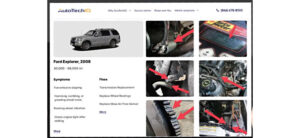Report identifies macro trends, business drivers, and technologies impacting consumer driving, vehicle ownership, automotive claims, and collision repair
Chicago—CCC Intelligent Solutions Inc. (CCC), a cloud platform powering the P&C insurance economy, has published its 2024 Crash Course Report highlighting the latest data, insights, and trends impacting the auto claims and collision repair industries.
The report, now on a quarterly schedule, is based on information derived from 300 million claims-related transactions and millions of bodily injury and personal injury protection (PIP) /medical payments (MedPay) casualty claims processed by CCC’s customers using the company’s solutions.
Crash Course Q1 2024 found that increasing vehicle complexity, combined with rising labor costs and shortages, are placing persistent pressure on carriers and repairers. New findings show that while vehicles may be safer, more capable of avoiding crashes, and more environmentally friendly, advanced technology is contributing to costlier repairs, higher claims costs, and longer cycle times.

Additional factors, such as scheduling backlogs, have contributed to the 60% increase in the amount of time it takes for vehicles to enter repair shops after estimate completion, compared to pre-pandemic times.
“Much of what the industry is experiencing is reflective of a new normal where complexity, beginning with the vehicle itself, is reshaping the market landscape,” said Kyle Krumlauf, director, Industry Analytics at CCC and co-author of Crash Course. “CCC has shifted to a quarterly publication of Crash Course to support the growing needs of our customers and the industry. This change allows us to provide more data and insights more frequently, helping industry participants anticipate challenges and be better equipped for the road ahead.”

Key findings of Crash Course: Q1 2024 include:
- Auto Tech Transformation: The report identifies key challenges faced by the auto claims and collision repair industries in keeping pace with the industry’s tech transformation, such as increased costs associated with repairing advanced driver assistance systems (ADAS) and other technology.
- Electric Vehicle (EV) Repairs: EVs are becoming more common in repair assessments. Despite their youth, EV repairs carry higher costs, especially in labor. Longer repair times are common due to capacity constraints and detailed repair procedures. EVs are totaled less often than non-EVs, reflecting changing valuation trends.
- Replace vs. Repair: An emerging “replace vs. repair” trend, a preference for replacing parts instead of repairing them, demands different skill sets for the repair industry leading to higher costs for consumers. Over the past decade, the cost differential for repairing older versus newer model year vehicles has grown by 35%.
- Urbanization and Weather: Acknowledging the impact of growing urbanization and volatile weather patterns as a constant catalyst for losses, the report confirms increases in property losses from severe weather events.
- Subrogation: High turnover among adjusters is hindering subrogation efforts, leading to decreased referrals, and complicating revenue and cost reduction strategies.
- Casualty: Despite decreasing treatment duration and procedure counts for injury claims since the peak in 2021, severity continues to climb due to significant cost increases for medical bills, particularly for high-dollar procedures like radiology and surgery.
- Claims and Repair Technology: Adoption of AI and automation tools to speed and inform functions from estimating to scanning to parts ordering continue to grow as the industry looks to offset the effects of labor shortages and the complexity that comes with today’s more sophisticated vehicles.
In addition to macro trends and topics, Crash Course Q1 2024 also includes industry-level detail on claims frequency and impact severity, medical costs, parts costs, total loss trends and more.
Previously published annually, Crash Course will be published quarterly in 2024 to provide more frequent updates on key trends and insight. The Q1 2024 report is the 29th edition of Crash Course.







Comments are closed.